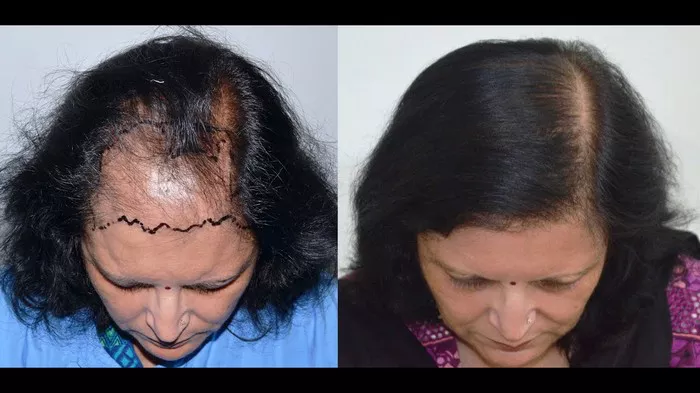Hair loss can be a distressing experience for many individuals, impacting self-esteem and confidence. In recent years, hair transplant procedures have gained popularity as an effective solution to restore hair growth and address baldness. Among the cities leading the charge in India for such procedures is Bangalore, renowned for its advanced medical facilities and skilled surgeons. However, before embarking on the journey to regain a full head of hair, it’s essential to understand the costs associated with hair transplant procedures in Bangalore. This guide aims to provide a comprehensive overview of the factors influencing costs, price breakdowns across clinics, comparisons between different methods, additional expenses, insurance coverage, financing options, and frequently asked questions.
Cost Range
The cost of a hair transplant in Bangalore can vary significantly depending on several factors. On average, the cost may range from ₹40,000 to ₹1,50,000 ($550 to $2000) per session. It’s important to note that multiple sessions might be required for optimal results. The overall expenditure can range from ₹80,000 to ₹4,50,000 ($1100 to $6000) or more, depending on the extent of hair loss and the number of grafts needed.
Factors Affecting Cost
Several factors influence the cost of a hair transplant procedure in Bangalore:
1. Extent of Hair Loss: The degree of baldness or hair thinning directly impacts the number of grafts required, which in turn affects the overall cost.
2. Number of Grafts Needed: A higher number of grafts necessitates more time and effort from the surgeon and medical team, leading to increased costs.
3. Technique Used: The choice between Follicular Unit Transplantation (FUT) and Follicular Unit Extraction (FUE) can influence the cost. FUT may be more affordable than FUE due to differences in the complexity of the procedures.
4. Surgeon’s Expertise and Reputation: Experienced surgeons with a track record of successful procedures may charge higher fees for their services.
5. Clinic Facilities: The quality of the clinic, including its amenities and technology, can impact the overall cost.
Price Breakdown
When considering the cost of a hair transplant in Bangalore, it’s essential to understand what services are included in the price. Prices may vary between clinics, and some may offer package deals or additional perks. Here’s a breakdown of typical costs:
1. Consultation Fees: Many clinics offer an initial consultation to assess the patient’s suitability for a hair transplant. Consultation fees typically range from ₹500 to ₹2000 ($7 to $27).
2. Procedure Cost: This includes the surgeon’s fees, anesthesia, use of facilities, and medical supplies. Depending on the clinic and the complexity of the procedure, this can range from ₹30,000 to ₹1,20,000 ($400 to $1600) per session.
3. Post-Procedure Care: Some clinics include post-operative care in their package, while others may charge extra for follow-up appointments, medications, and special shampoos or treatments.
4. Additional Services: Optional services such as PRP therapy (Platelet-Rich Plasma) to enhance hair growth may incur additional costs.
Comparison
Comparing the costs of different hair transplant methods and clinics is crucial for ensuring value for money. While cost is a significant factor, it’s equally important to consider the quality of services and the reputation of the surgeon. Here’s a comparative overview:
1. FUT vs. FUE: FUT procedures tend to be more affordable than FUE due to differences in technique and labor intensity. However, FUE offers advantages such as minimal scarring and quicker recovery times, which may justify the higher cost for some individuals.
2. Clinic Comparison: Researching multiple clinics and comparing their pricing, patient reviews, before-and-after photos, and surgeon credentials can help individuals make informed decisions.
Additional Costs
In addition to the primary procedure cost, patients should be aware of potential additional expenses:
1. Medication: Prescription medications to promote healing and prevent infection may be prescribed post-procedure.
2. Follow-up Visits: Regular follow-up appointments with the surgeon may be necessary to monitor progress and address any concerns. These visits may incur additional charges.
3. Travel and Accommodation: For patients traveling from other cities or countries to undergo the procedure, expenses related to travel, accommodation, and meals should be factored in.
Insurance and Financing
Hair transplant procedures are typically considered cosmetic and elective, meaning they are not covered by health insurance plans. However, some insurance providers may offer coverage for specific medical conditions leading to hair loss, such as alopecia areata. Patients should check with their insurance provider to determine coverage eligibility.
For those unable to pay the full cost upfront, many clinics offer financing options such as installment plans or medical loans. Patients can inquire about these options during the consultation process.
FAQs
Is a hair transplant permanent?
Yes, transplanted hair follicles are typically permanent and should continue to grow naturally.
Is the procedure painful?
Local anesthesia is administered during the procedure, minimizing discomfort. Patients may experience mild pain or soreness in the days following the surgery, which can be managed with pain medication.
How soon will I see results?
Hair growth usually begins within a few months following the procedure, with full results visible within 9 to 12 months.
Are there any risks or side effects?
While hair transplant procedures are generally safe, potential risks include infection, bleeding, scarring, and unnatural-looking results. Choosing a qualified and experienced surgeon can help minimize these risks.
In conclusion, the cost of a hair transplant in Bangalore varies depending on several factors, including the extent of hair loss, the number of grafts needed, the surgical technique, and the clinic’s facilities. Patients should thoroughly research their options, compare costs and services, and consider potential additional expenses before making a decision. Consulting with a qualified surgeon is essential for assessing candidacy and developing a personalized treatment plan. While insurance coverage is unlikely, financing options may be available to make the procedure more affordable for those in need.


